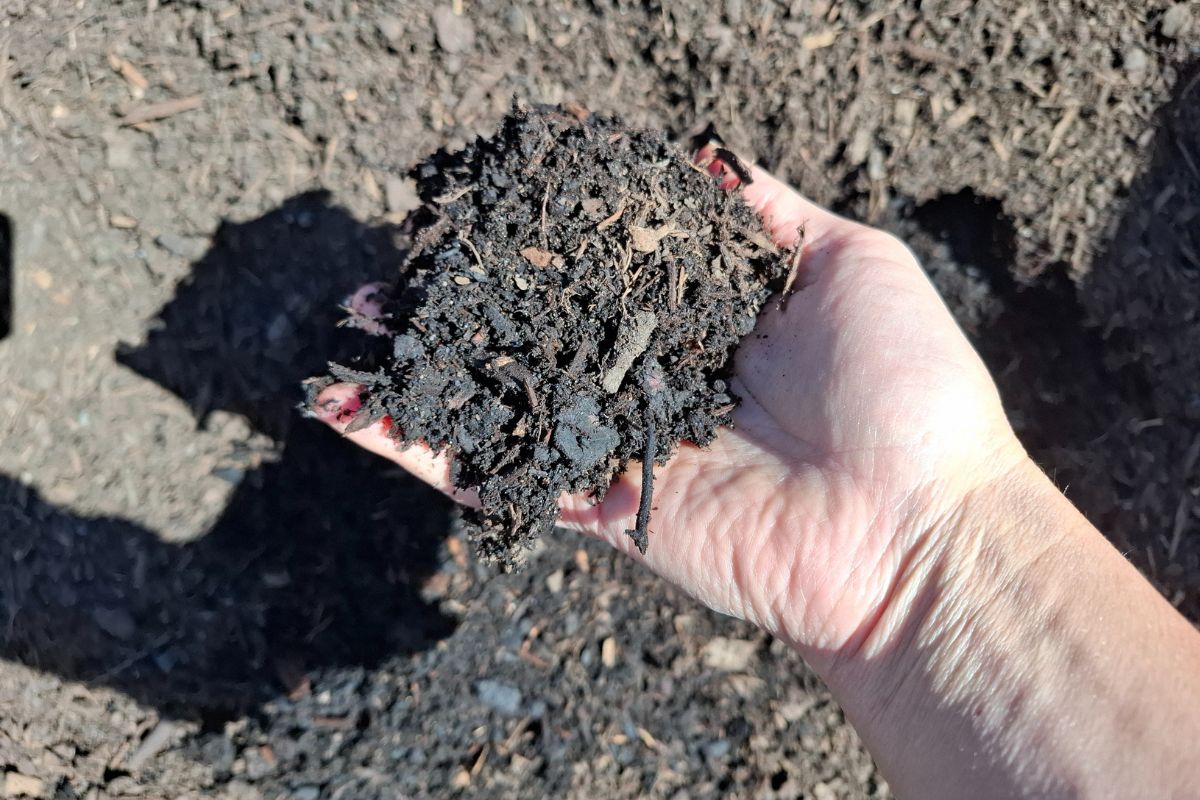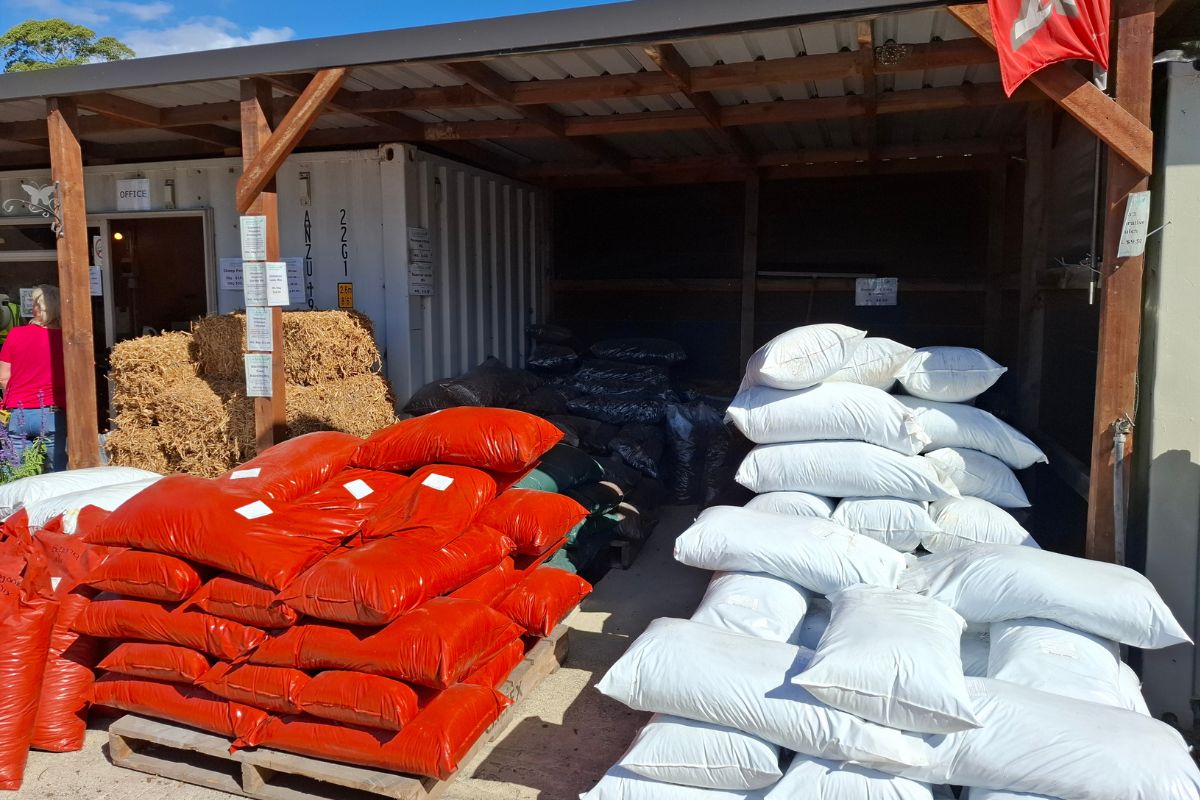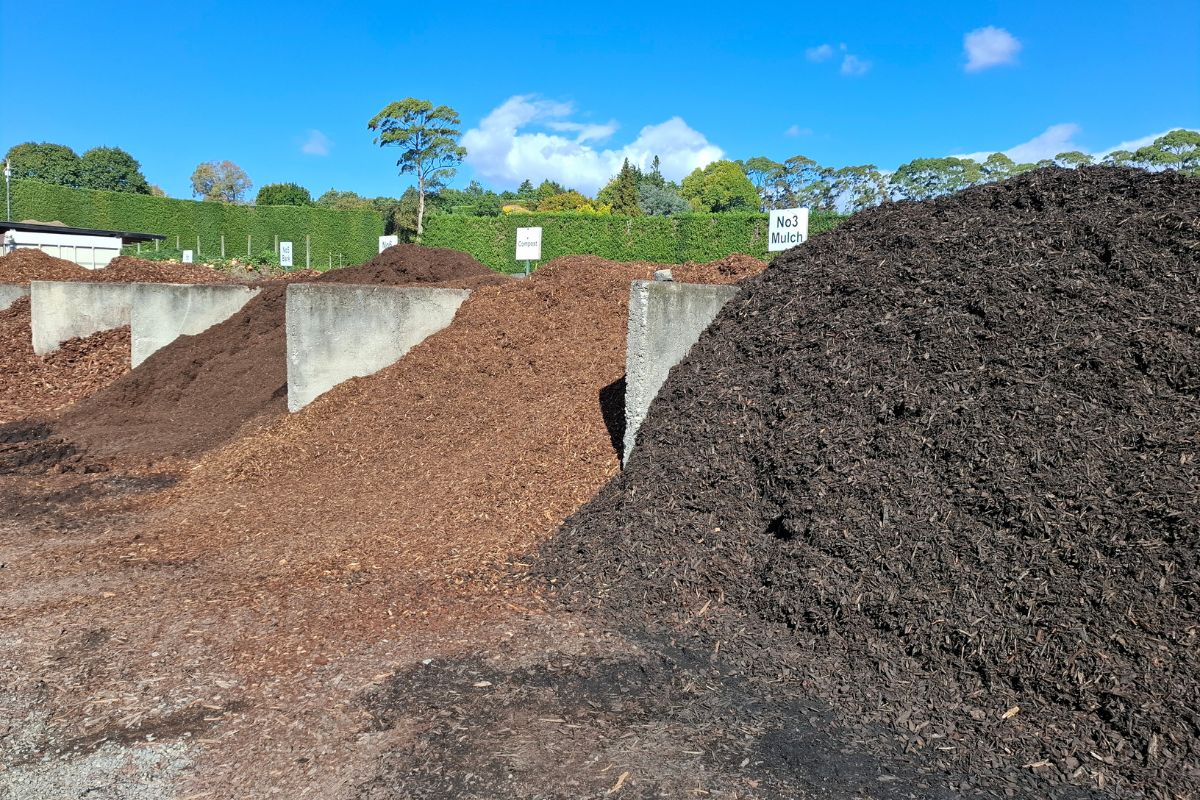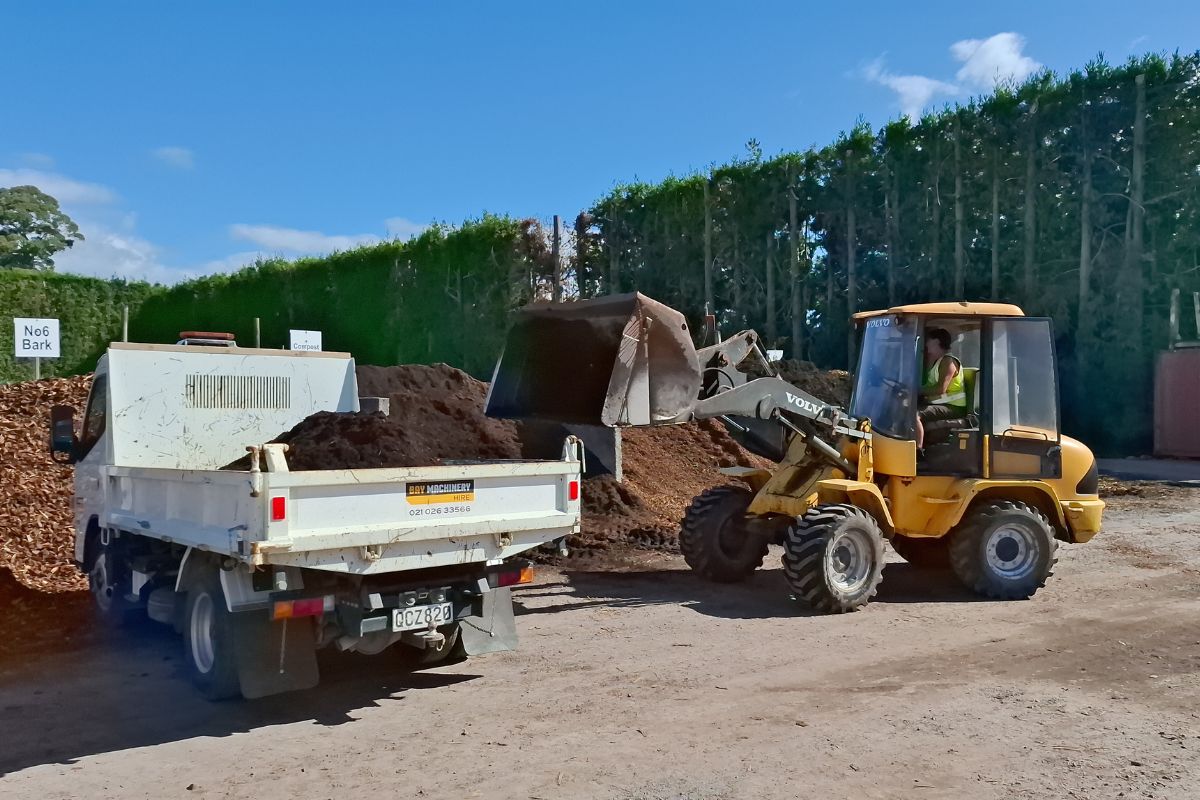Bulk compost plays a pivotal role in improving the health of garden soil. While most believe spring is the perfect time for composting, doing so in the colder months holds equal significance. Here’s a comprehensive guide on the benefits of fertilising during winter, the roles pea straw, compost, and cover crops play, and where to source the best quality compost in Tauranga!
Why Composting in Winter Makes Sense
Composting is an effective way to nourish the soil with essential nutrients and protect it from erosion. It preserves microbial life, adds organic matter, and is the key to better crop health and a thriving garden ecosystem. While bulk compost is usually added during warm temperatures, which accelerate the decomposition, there are various reasons to do this during winter.
Leaving the garden beds fallow in winter comes with some major downsides. The exposed soil is oxidised and loses valuable carbon—known as carbon burnoff. With no carbon input, microbial activity declines, leading to a decline in the soil’s health and, in turn, the vitality of future crops.
Meanwhile, composting in winter gives the soil time to fully absorb the nutrients before the start of the planting season. Doing so improves the soil’s water retention and decreases the risk of erosion and runoff due to wind or rain.

How Pea Straw Keeps Winter Soil Healthy
Similar to compost, pea straw also acts as a blanket for the winter soil in chilling temperatures and provides a stable soil environment. It consists of dried leaves and tendrils left after harvesting green peas, field peas, etc.
Pea straw is exceptional at weed control and moisture retention during the winter. It does this by forming a thick barrier on the soil, thereby blocking sunlight and suppressing the growth of weeds. In addition, the protective layer reduces evaporation, retains moisture, and regulates the soil temperature against rapid freeze-thaw cycles.
Another prominent characteristic of pea straw is its slow decomposition, which helps boost microbial activity within the soil. Worms, fungi, and other microbes thrive within the dense layers, contributing to better nutrient cycling, humus formation, and healthier spring crops.

Pea Straw vs Mulch: What’s Better for Winter Soil
Pea straw and mulch are both fruitful at protecting the winter soil but differ in terms of decomposition speed, nutrient management and type of soil they work best on.
Pea straw, composed of dried stems and leaves of pea plantations, is a lightweight and nutrient-friendly option. It breaks down quickly and adds organic matter to improve the soil’s texture. Moreover, since pea straw is not wood based, it doesn’t lead to depletion of nitrogen during decomposition.
In contrast, mulch has a more versatile composition. It is derived from various materials, each having its own set of benefits. For example, wood-based mulches like wood chips have rapid decomposition and tie up nitrogen in the soil—a process known as nitrogen drawdown—which hinders plant growth. On the other hand, options like bark mulch and leaf mulch are far better at enriching soil fertility without the sudden nitrogen drawback, making them excellent choices for maintaining healthy winter gardens.
The ultimate choice depends on the garden’s soil properties and climate. During winter, opt for pea straw for fast soil enrichment (mainly used for vegetable gardens) or go with finer mulches around perennials if you prefer long-term coverage.

How to Mulch with Bulk Compost and Pea Straw
Combining bulk compost with pea straw is a simple, natural way to enrich the soil and set the stage for healthy spring planting. However, to make the most of their benefits, it is important to know how to properly layer the elements together.
Before mulching, get rid of any large debris or weeds present on the garden bed. Then, choose a quality, bulk garden compost delivered (or collect yourself) and introduce it directly onto the soil’s surface and spread evenly to a depth of about 2 to 5 cm thick.
Last, cover the soil with a loose layer of pea straw, typically about 5 to 10 cm thick. Ensure that water and air can penetrate through this mulch layer and leave small gaps around the plant stems to lower the threat of pest or rot buildup. In case of dry, harsh conditions, water lightly to help settle the mulch and yield better results.
Why Cover Crops Work for Winter Soil Health
Cover crops are another soil strategy implemented during off-seasons, such as winter. These crops are grown primarily with the intention of protecting the soil and improving its structure. Apart from adding organic matter, cover crops are a great way of fixing nitrogen levels before spring planting.
Crops like clover form a symbiotic bond with the soil’s bacteria to collect and store nitrogen. Meanwhile, the natural mulch prevents water and wind erosion, otherwise a prominent challenge in New Zealand’s wet winters.
The selection of cover crops depends on factors like soil type, timing, and climate. Lupins, for example, are excellent nitrogen fixers and thrive in well-drained soils. Other great options for Tauranga winters include oats for improving soil structure, mustard for suppressing soil-borne diseases, and phacelia a fast-growing flowering annual that enhances soil health while attracting beneficial insects like bees and hoverflies
To make the most out of this soil care plan, sow the cover crops from early to mid-winter and rotate them every year to prevent pest buildup. Pair compost with cover crops, slashing them once spring approaches and mixing it into the soil. This multi-layer strategy helps prepare the soil for the upcoming planting season.

Where to Buy Bulk Compost in Tauranga
The use of high-quality compost alongside pea straw and cover crops is the ideal solution for preparing the soil during winter for a healthy, productive spring planting. Gammans premium compost—featuring Hauraki Peat and stabilised bark fines—is perfect for winter use and long-term soil health.
We offer fast, reliable bulk compost delivery across Tauranga, so you can get high-quality compost exactly when you need it. As a family-owned and operated business for over 60 years, we’re proud to supply our local community with quality compost Tauranga can trust.
Not sure which blend suits your garden best? We’re happy to help—get in touch with us for friendly guidance and great value on premium bulk compost, mulch, and pea straw.
